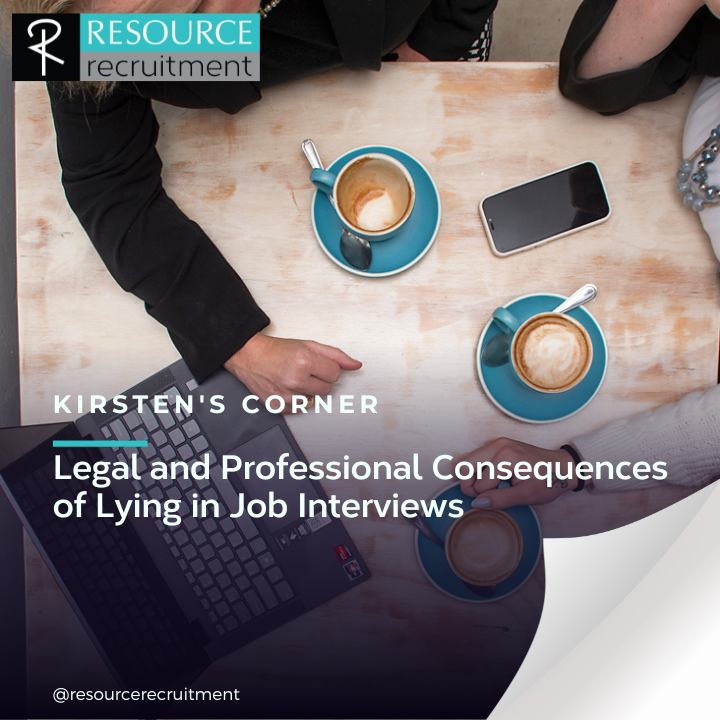
25 Oct Legal and Professional Consequences of Lying in Job Interviews Interview
The Importance of Honesty in Job Interviews:
Legal and Professional Consequences of Lying
When preparing for a job interview, the temptation to embellish or stretch the truth about your qualifications, experiences, or achievements can be strong. However, honesty in interviews is not only a matter of ethical conduct but also a legal requirement in South Africa under the National Qualifications Framework Amendment Act 2019. In this blog, we will explore why it is crucial to be truthful in job interviews, the potential legal and professional consequences of lying, and how to address past employment issues transparently.
Why Honesty is Crucial in Job Interviews
- Legal Implications: In South Africa, lying during a job interview can have serious legal repercussions. The National Qualifications Framework Amendment Act 2019 makes it illegal to provide false information about qualifications and work experience. This legislation aims to uphold the integrity of qualifications and ensure that job candidates are accurately represented. Violating this law can result in legal consequences, including fines or other penalties.
- Trust and Integrity: Honesty is fundamental to building trust with potential employers. By being truthful, you demonstrate integrity and reliability—qualities that are highly valued in any professional setting. Employers rely on accurate information to make informed hiring decisions, and dishonesty can undermine your credibility and damage your reputation.
- Grounds for Dismissal: If it is discovered that you lied during the interview process, it can be grounds for dismissal even after you have been hired. Companies conduct background checks and reference verifications to ensure that the information provided by candidates is accurate. If discrepancies are found, it can lead to termination of employment and legal actions against you.
- Opportunity to Explain Past Issues: An interview is a valuable opportunity to provide your side of the story regarding any issues or challenges you faced in previous employment. Instead of fabricating details, use the interview to explain and contextualize your experiences. Addressing potential concerns transparently can demonstrate your growth, learning, and ability to handle difficult situations professionally.
Consequences of Lying in Job Interviews
- Damage to Professional Reputation: Being caught in a lie can irreparably damage your professional reputation. Word of dishonesty can spread within the industry, affecting future job opportunities and professional relationships.
- Legal Risks: As mentioned, the National Qualifications Framework Amendment Act 2019 enforces penalties for falsifying qualifications and work history. Engaging in dishonest practices can lead to legal consequences and negatively impact your career long-term.
- Job Performance Issues: If you secure a job based on false information, you may struggle to meet the expectations set by your role.
How to Address Past Employment Issues Honestly
- Prepare Your Explanation: Before the interview, prepare a clear and honest explanation for any past employment issues. Focus on what you learned from the experience and how it has contributed to your professional growth.
- Be Transparent: When discussing past challenges or gaps in employment, provide factual information and highlight the positive outcomes. Being transparent about your experiences shows maturity and accountability.
- Emphasize Growth and Learning: Frame your past experiences as learning opportunities. Discuss the skills and insights you gained and how they have prepared you for future roles.
- Practice Your Responses: Rehearse your responses to common questions about your past employment to ensure you present your experiences confidently and honestly. Practicing will help you convey your points effectively and stay composed during the interview.
Honesty in job interviews is crucial not only for maintaining your professional reputation but also for adhering to legal requirements under South Africa’s National Qualifications Framework Amendment Act 2019. Lying can have severe consequences, including legal repercussions, job termination, and long-term damage to your career.
For more insights on interview preparation and career advice, subscribe to our blog and connect with us on social media!



